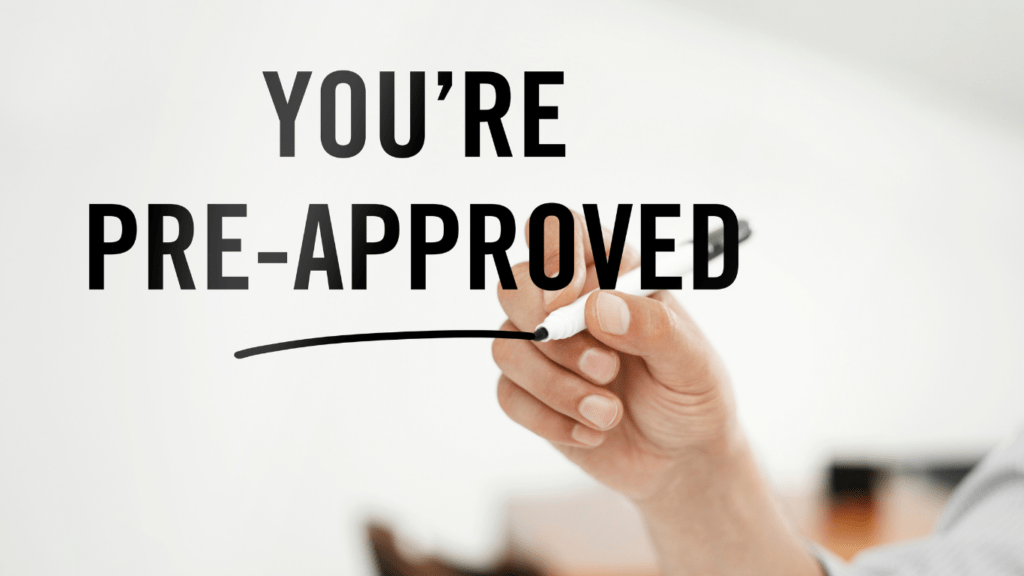Understanding Mortgage Pre-Approval
Mortgage pre-approval is a critical first step in the home-buying process. It provides clarity on your financial standing and builds trust with sellers.
What Is Mortgage Pre-Approval?
Mortgage pre-approval is a formal evaluation by a lender to determine the maximum loan amount you may borrow, based on your financial details. It involves reviewing your income, credit score, debts, and assets. Once approved, you’ll receive a pre-approval letter, which is valid for 60-90 days, depending on the lender. This document shows sellers that you’re financially prepared to make an offer.
Why Is Pre-Approval Important for New Buyers?
Pre-approval strengthens your position in a competitive housing market. It provides an accurate understanding of your budget, eliminating properties outside your price range. For first-time buyers, it simplifies the decision-making process by narrowing down options. Additionally, it speeds up the closing process when you’ve already secured approval for financing.
Steps to Get Pre-Approved for a Mortgage

Understanding the steps to secure mortgage pre-approval ensures a smoother home-buying experience. By following these steps, I can improve my chances of obtaining the best mortgage terms.
Evaluate Your Financial Health
I assess my financial health by reviewing my income, credit score, debts, and savings. A strong credit score, generally 620 or higher, increases my chances of approval. Stable income and a debt-to-income (DTI) ratio below 43% are also crucial. If my credit score is low, I focus on paying off existing debts while avoiding new ones.
Gather Essential Documentation
Lenders require specific documents to process my pre-approval. These include recent pay stubs, W-2 forms, tax returns for the past two years, and bank statements. I prepare documentation for any investments or additional sources of income. Staying organized makes the process quicker and prevents delays.
Research and Compare Lenders
I research lenders to find the best mortgage rates, fees, and terms. Comparing offers from at least three lenders helps me identify competitive options. Reading online reviews and seeking recommendations ensures I select a reputable lender. I confirm they have experience with first-time homebuyers if applicable.
Submit Your Application
After choosing a lender, I fill out the mortgage pre-approval application. This involves providing all requested information and documents accurately. Lenders perform a credit check and verify my details before issuing the pre-approval letter. I keep this letter handy to strengthen my position when making an offer.
Tips for a Successful Pre-Approval Process
A successful mortgage pre-approval depends on strong financial preparation and careful attention to key factors. Following these tips can help make your pre-approval process smoother and more effective.
Improve Your Credit Score
Lenders rely on credit scores to assess financial responsibility. I review my credit report for errors and address any discrepancies promptly. Paying down outstanding debts, such as credit card balances, and avoiding late payments boosts my credit score. For the best results, I aim for a score of 700 or higher, though most lenders accept scores above 620.
Avoid Major Financial Changes
Consistent financial behavior reassures lenders of my reliability. I delay major purchases, like cars or expensive appliances, until after final loan approval. Opening new credit accounts or closing existing ones affects my credit score and should be avoided during this period. Stability in employment and income sources is equally critical for pre-approval success.
Understand Debt-to-Income (DTI) Ratio
The debt-to-income ratio compares monthly debt payments to gross income.
- I keep my DTI ratio below 43%, as higher ratios reduce my chances of approval.
- I calculate this by adding up my monthly debts, such as loans and credit card payments, and dividing the total by my gross monthly income.
- Reducing unnecessary debts improves my DTI and strengthens my pre-approval application.
Common Mistakes to Avoid
Avoiding common mistakes during the pre-approval process can save time, money, and stress. Understanding these pitfalls helps first-time buyers make smarter choices.
Overestimating Your Budget
Overestimating the budget can lead to financial strain. I ensure that my housing expenses, including taxes and insurance, don’t exceed 30% of my income. Ignoring this can result in struggles to cover other essential costs. Calculating the debt-to-income ratio accurately and factoring in ongoing expenses like utilities or maintenance prevents overcommitment.
Failing to Shop Around
Relying on a single lender often means missing better loan terms. I compare mortgage rates, fees, and conditions from at least three lenders. Exploring different institutions, including:
- banks
- credit unions
- online lenders
reveals potential savings. Prioritizing offers with competitive interest rates and reasonable closing costs avoids unnecessary expenses over the loan term.
Missing Important Deadlines
Ignoring deadlines disrupts the mortgage process. Pre-approval letters usually expire within 60-90 days, so I monitor the timeline closely while searching for homes. Delays in submitting required documents, like updated pay stubs or bank statements, can jeopardize the approval. Staying organized and proactive ensures a smoother process and avoids setbacks.
Benefits of Being Pre-Approved
Getting pre-approved for a mortgage offers several advantages that can streamline the home-buying process. It not only helps identify a buyer’s financial limits but also strengthens their standing during negotiations.
Better Clarity on Home Affordability
Pre-approval provides a clear understanding of how much home I can afford. Lenders determine the maximum loan amount based on factors like my income, credit score, and debt-to-income (DTI) ratio. This eliminates uncertainty and allows me to focus on properties within my price range. For example, if I’m pre-approved for $300,000, I don’t waste time considering homes listed above my budget. This clarity prevents overspending and avoids disappointment during the search.
Stronger Position as a Buyer
A pre-approval letter positions me as a serious buyer in a competitive market. Sellers view pre-approved buyers as financially secure, increasing the likelihood of accepting my offer over those without pre-approval. If multiple bids exist, being pre-approved demonstrates my preparedness and reduces risks for the seller, shortening the negotiation process. This advantage is especially crucial in markets with limited inventory and high demand..




